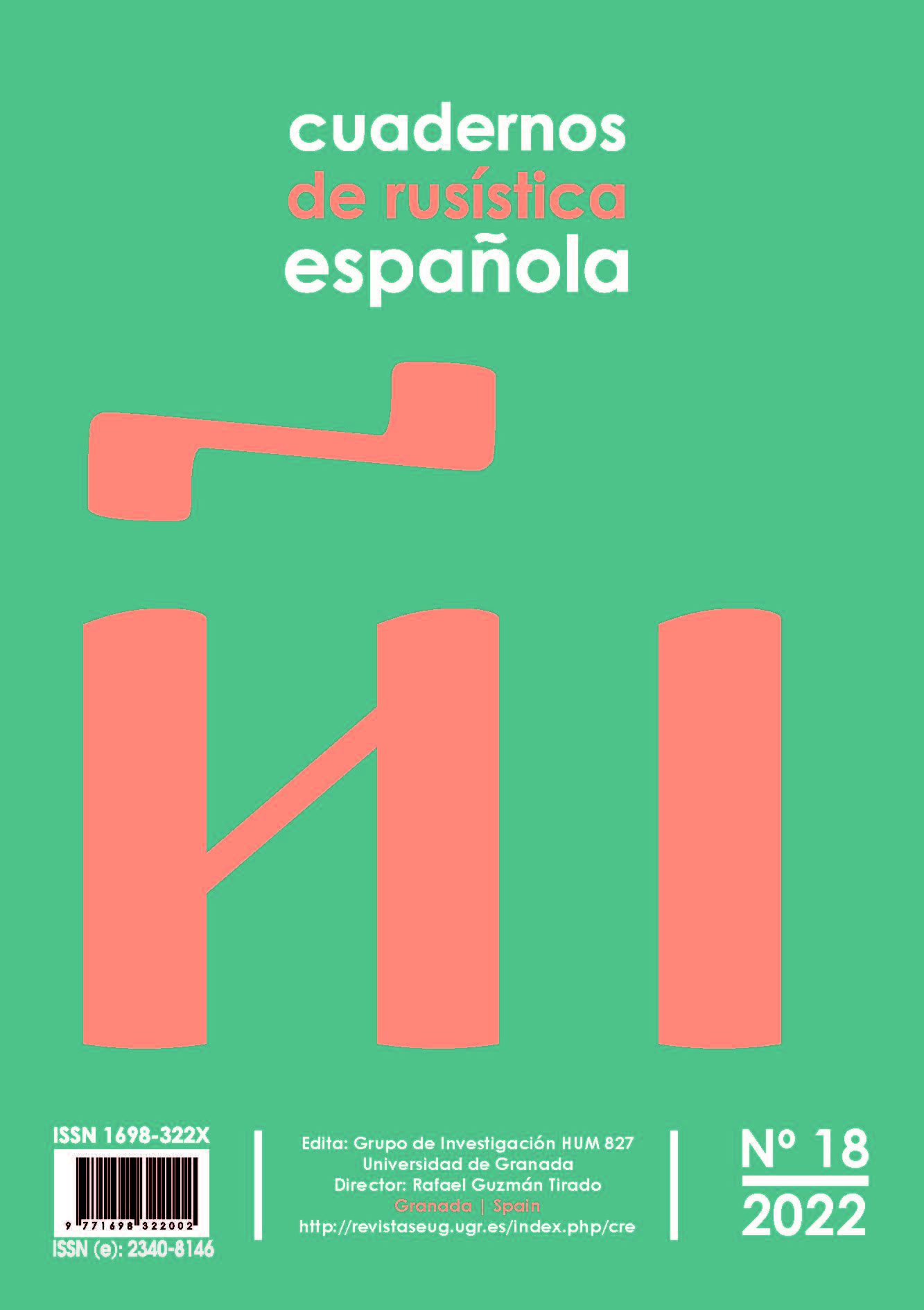On the Question of Part-of-Speech Affiliation of Terms of Oil and Gas Industry
DOI:
https://doi.org/10.30827/cre.v18.23618Palabras clave:
term, terminology, oil and gas industry, verb, noun, adjectiveResumen
The paper is devoted to the study of the problem of part-of-speech affiliation of the term in the field of oil and gas industry. Many terminologists believe that terms should be represented only by nouns. Others believe that other significant parts of speech can also act as a term. The question remains controversial: is the terminology limited to nouns or does it also include adjectives and verbs? The article irrefutably proves that terms can be nouns, verbs and adjectives. Different points of view on part-of-speech affiliation of terms in the linguistic literature are presented in this article. The theoretical questions related to part-of-speech issue in oil and gas terminology are described. The analysis proves that nouns are not the only means of expressing a special concept, but the fact that nouns represent a stable part of the vocabulary of the oil and gas terminology system remains unchanged.
Descargas
Citas
AKHMANOVA O.S. (1966). Slovar' lingvisticheskih terminov. Moskva: Sovetskaja jenciklopedija.
DANILENKO V. P. (1977). Russkaja terminologija: Opyt lingvisticheskogo opisanija. Moskva: Nauka.
DUMITRU E. Sh. (2008). Metafora v terminologii neftedobychi. Russkij jazyk za rubezhom, 5, s. 41-44.
DUMITRU E. Sh. (2009). Strukturno-semanticheskij analiz russkoj terminologii neftedobychi. Dis… kand. filol. nauk. Moskva.
GOLDENDICT Gnu-Linux Ubuntu versija jelektronnyj slovar'. (08.09.2021). Rezhim dostupa URL: https://apps.ubuntu.com/cat/applications/precise/goldendict/).
IONOVA O. S. (2009). Sovremennaja terminologija v sfere neftegazovoj promyshlennosti. Vestnik KASU, 2, s. 86-91.
LEVINA M. A. (2007). Specifika metaforicheskih perenosov v otraslevoj terminosisteme. Nauchnyj vestnik Voronezh. gos. arh.-stroit. un-ta: Sovremennye lingvisticheskie i metodiko-didakticheskie issledovanija, 1 (8), s. 146-151.
LEYCHIK V. M., Shelov S. D. (1990). Lingvisticheskie problemy terminologij i nauchno-tehnicheskij perevod. Moskva: Vsesojuznyj centr perevodov.
MAN OLDRICH. (1964). Postaveni slovena v systémy terminologie (Na materiale ruském a českém). Acta Universitatis Carolinae Philologica, 2, s. 129-138.
MILOUD M. R. (2014). Pussko-Francuzskij slovar' terminov neftegazovoj promyshlennosti. Parizh: Publibook. (https://www.publibook.com/dictionnaire-russe-francais-des-termes-du-petrole-et-du-gaz.html/ data obrashhenija – 17.11.2021).
MILOUD M. R. (2019). Russko-francuzsko-arabskij slovar' terminov neftegazovoj promyshlennosti. Riga: Noor Publishing. (https://www.noor-publishing.com/catalog/details/store/fr/book/978-620-0-06706-7 (data obrashhenija – 17.11.2021).
MILOUD M. R. (2018). Stanovlenie jazyka russkoj nauki i formirovanie russkoj terminologicheskoj leksiki. Materialy Vserossijskoj nauchno-prakticheskoj konferencii s mezhdunarodnym uchastiem: «Hudozhestvennyj tekst: problemy chtenija i ponimanija v sovremennom obshhestve». Sterlitamak: Sterlitamakskij filial BashGU, s. 227-230.
MILOUD M. R. (2015). Strukturno-semanticheskij analiz leksiki neftegazovoj promyshlennosti. Saarbrjukken: Izdatel'stvo Lap Lambert Academic Publishing.
SHCHEGLOVA H.A. (1968). K voprosu o grammaticheskih sredstvah terminologizacii russkih glagolov v professional'noj rechi XVII – XVIII vv. Uchenye zapiski MGPI im. V.I. Lenina, 8, s. 74-93.
SNETOVA, G. P. (1984). Russkaja istoricheskaja terminologija: Uchebnoe posobie, Kalinin: KGU.
SUDOVCEV V. A. (1989). Nauchno-tehnicheskaja informacija i perevod. Moskva: Vysshaja shkola.












